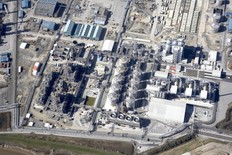- The plant will produce 420 million liters of ethanol and 500,000 tonnes of animal feed annually.
- 1.1 million tonnes of locally sourced wheat will be used.
- The project represents a €435m investment and will be fully operational later in 2012.
- The plant will cut GHG emissions by over 50%, equivalent to removing 200,000 cars annually.

Production Capacity
The plant, located at Saltend near Hull, will be one of Europe's largest ethanol producers and the UK's biggest, with an annual output of 420 million liters. It will also produce 500,000 tonnes of animal feed per year, making it the UK's largest single source supplier.
Raw Materials and Process
Vivergo will use 1.1 million tonnes of locally sourced, feed-grade wheat annually, converting it into bioethanol and animal feed with no waste. The first wheat delivery was recently made as part of the commissioning process.
Environmental Impact
The bioethanol produced will offer greenhouse gas savings exceeding 50% compared to standard petrol, equivalent to removing 200,000 cars from the road each year. The animal feed production will meet the protein requirements for over 340,000 dairy cows daily, about 18% of the national dairy herd.
Economic Impact
The project represents an investment of €435 million and will directly employ around 80 highly skilled individuals, mostly from the local area. An estimated 1,000 additional jobs will be dependent on the business. To date, Vivergo has contributed over £60 million to the local economy through supplier and business contracts.
Construction and Safety
The construction site is one of the UK's largest outside of the Olympic program, employing over 800 people through main contractors. The company has achieved 4 million man-hours without a Day Away from Work Case (DAFWC) and has received the RoSPA Gold Award for Occupational Health & Safety.
Joint Venture
Formed in 2007, Vivergo Fuels is a joint venture between AB Sugar, BP, and DuPont. Once fully operational later in 2012, the plant will meet about one-third of the UK's forecast biofuel demand for petrol.

